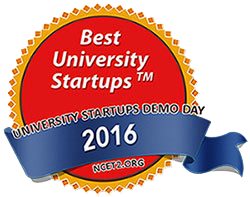The global scientific and technical response to the Covid-19 pandemic illustrates the power of 21st century medical science and technology. Clearly, a goal, based upon that we’ve learned, can be and should be the elimination of future pandemics. While Evrys Bio’s daily work is on the development of therapeutics for a broad range of viral infections, we realize the importance of supporting efforts to prevent future devastating pandemics. To that end, Evrys Bio wants to highlight the work of organizations much bigger that we could ever be that have taken on this challenge.
Strategic initiatives focused on the big picture are 1) The Global Virome Project and 2) The Trinity Challenge.
The Global Virome Project (GVP) – The GVP envisions a global collection of partnerships targeting the vast pool of unknown future viral threats through the development of a comprehensive ecologic and genetic database of virtually all naturally-occurring viruses. Through the GVP, unknown viruses will be isolated and their sequences shared in a publicly-accessible database. This database and associated scientific publications will enable us to target high impact interventions to prevent spillover at high-risk animal human interfaces. Similarly, the work of the GVP will yield benefits by accelerating the development of new diagnostics, vaccine technologies, medicines and risk mitigation strategies against emerging viral diseases. GVP Ten Year Plan.
The Trinity Challenge (TC) – New technologies are driving rapid progress in vaccines and medicines and we are seeing unprecedented collaboration and effort between companies. TC seeks to assure the world is better prepared for future pandemics. COVID-19 has shown there is a clear need to better identify, better respond, and better recover from health emergencies. TC’s focus is assuring that data and analytics is widely available to identify, generate, and provide insights which shall contribute to the goal of a world better protected from health emergencies. TC is supported by high tech organizations varying from Plantir, Microsoft, Google, to the Bill and Melinda Gates Foundation, BD, GSK and international universities.


 On October 7, 2020, staff scientist Dr. Liudi Tang presented at the Special isirv-AVG Virtual Conference on ‘Therapeutics for COVID-19’ . Dr. Tang will present the most recent data for one of Evrys Bio’s drug leads which has been demonstrated to have a broad spectrum of activities against a variety of viruses involved in human disease.
On October 7, 2020, staff scientist Dr. Liudi Tang presented at the Special isirv-AVG Virtual Conference on ‘Therapeutics for COVID-19’ . Dr. Tang will present the most recent data for one of Evrys Bio’s drug leads which has been demonstrated to have a broad spectrum of activities against a variety of viruses involved in human disease.